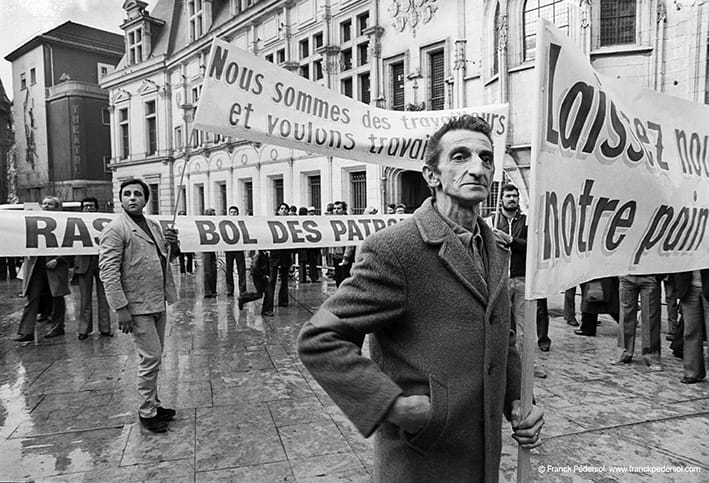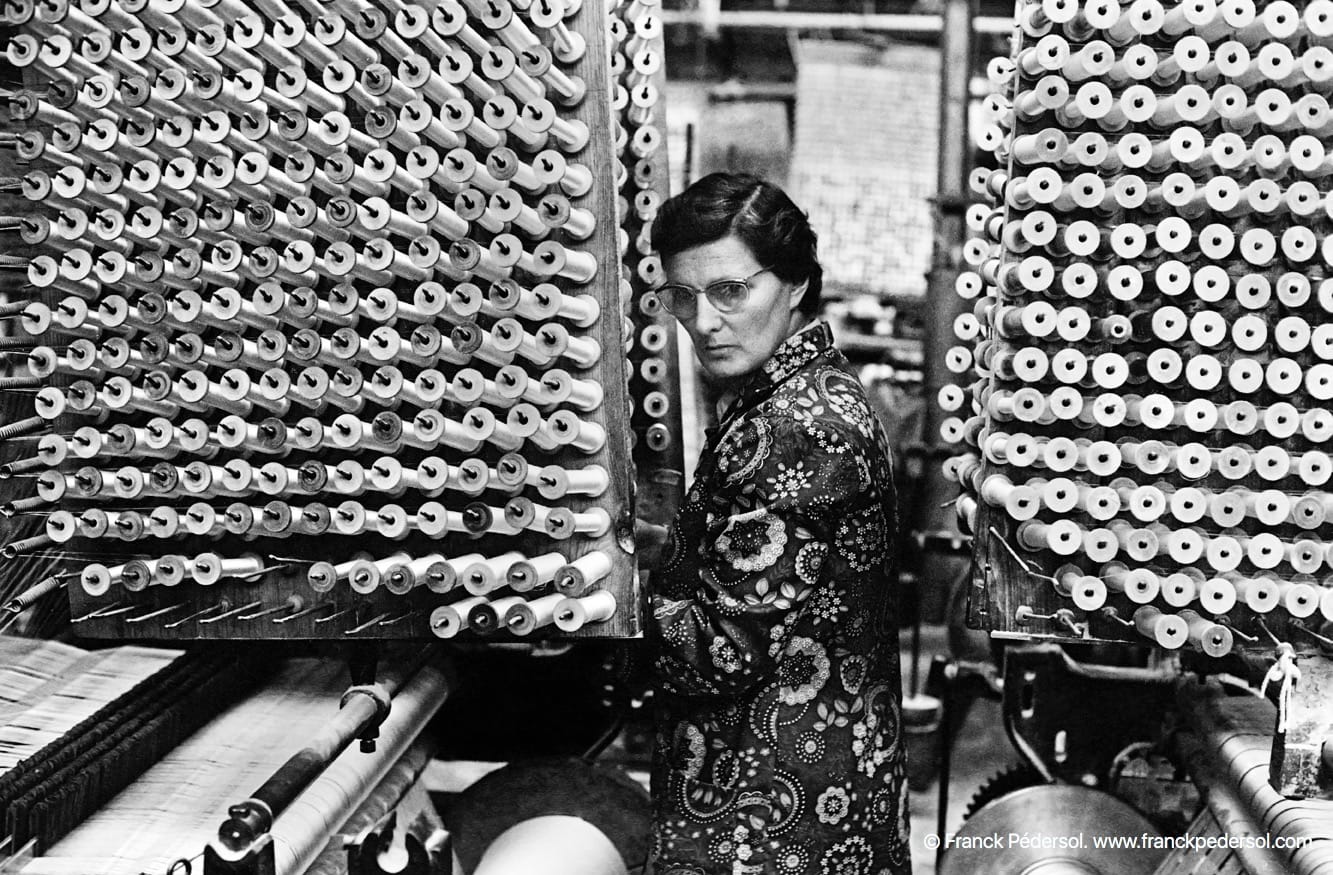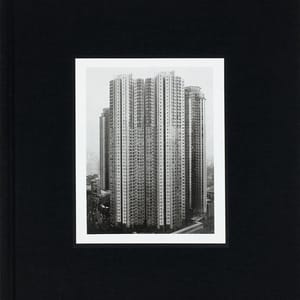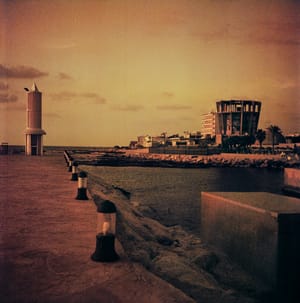In the echoes of factories and the hum of machinery, a story unfolds—a narrative of human endeavor, resilience, and the unyielding spirit of labor. This is the world that Franck Pédersol, a distinguished photographer born on August 3, 1952, in Vizille, Isère, has dedicated his life to capturing. His collection, "People at Work," is a testament to the grit and determination of workers who have shaped the industrial landscape of France. Through his lens, Pédersol not only documents the physicality of labor but also delves into the profound human experiences intertwined with it.
The Genesis of a Photographer
Pédersol’s love affair with photography began at the tender age of 13. Every day, as he walked to school, he passed by the local photographer's shop, mesmerized by the Kodak Retinas and Rolleiflex cameras displayed in the window. The turning point came when he finally got his hands on a Kodak Retina. His first significant photograph captured the ethereal beauty of Maurice Bejart’s ballet at the Maison de la Culture de Grenoble. Yet, the image that truly ignited his passion for photography was Gilles Caron’s iconic shot of Daniel Cohn-Bendit defiantly facing a CRS officer during the May 1968 protests.
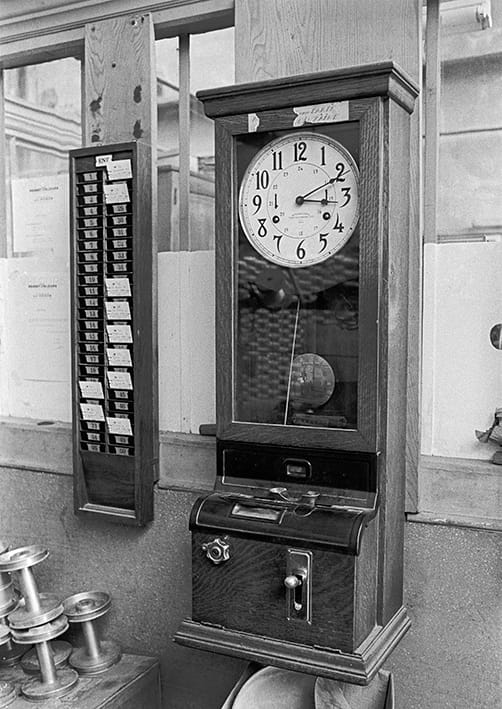
The Camera as a Shield
For Pédersol, photography was more than an artistic pursuit; it was a means of connection. As a naturally shy individual, the camera provided a way to interact with the world without feeling vulnerable. "Behind the camera, I felt protected," he recalls. This tool allowed him to explore various environments—factories, hospitals, casernes, and more—that were otherwise closed off to outsiders.
Choosing a Path Less Traveled
Despite his passion for photography, Pédersol’s parents did not see it as a viable career. To reassure them, he promised to complete his studies, earning a degree in economics. However, he never wavered from his true calling. While studying, he began working as a freelance photographer, collaborating with regional newspapers and the Fotolib agency. By 1974, with his degree in hand, he fully immersed himself in the world of photography, contributing to prominent magazines like L’Express, Le Nouvel Observateur, and La Vie.
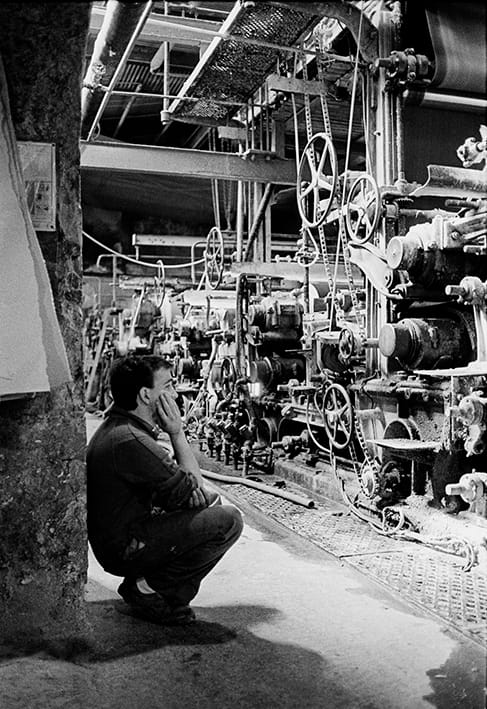
Inspirations and Influences
Pédersol draws inspiration from a diverse group of photographers. The humanistic approach of Henri Cartier-Bresson, the stark realities captured by Dorothea Lange, and the profound depth in W. Eugene Smith’s work have all influenced his style. Contemporary photographers like Mary Ellen Mark, Bruce Gilden, and Diane Arbus also resonate deeply with him, shaping his perspective and approach to documenting life.
The Technical Craft
Initially, Pédersol worked with an Asahi Pentax, longing for a Leica that was financially out of reach. Today, he wields a Nikon D800, equipped with 35mm and 50mm lenses. His choice of equipment allows him to capture the raw, unfiltered essence of industrial labor. The Nikon D800, known for its high resolution and durability, is perfect for the demanding environments he often finds himself in.
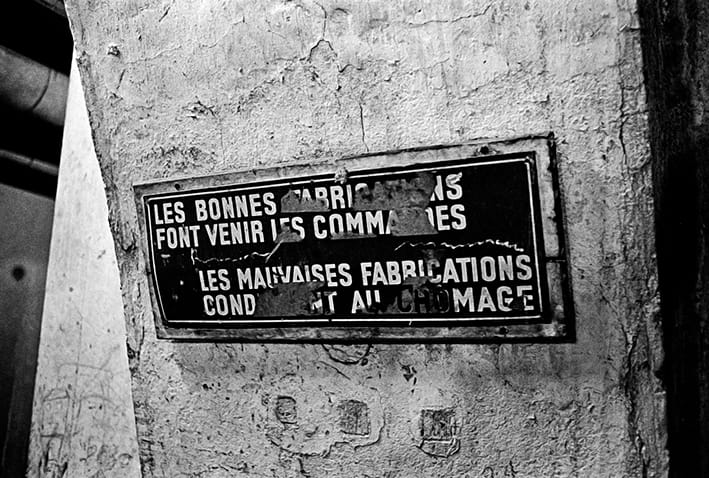
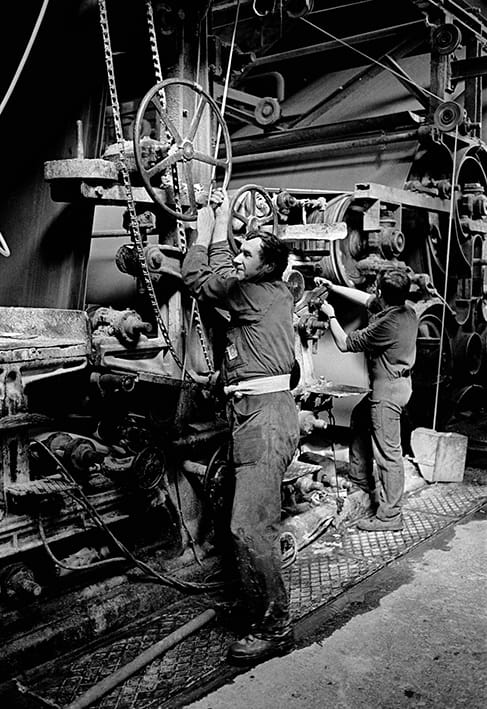
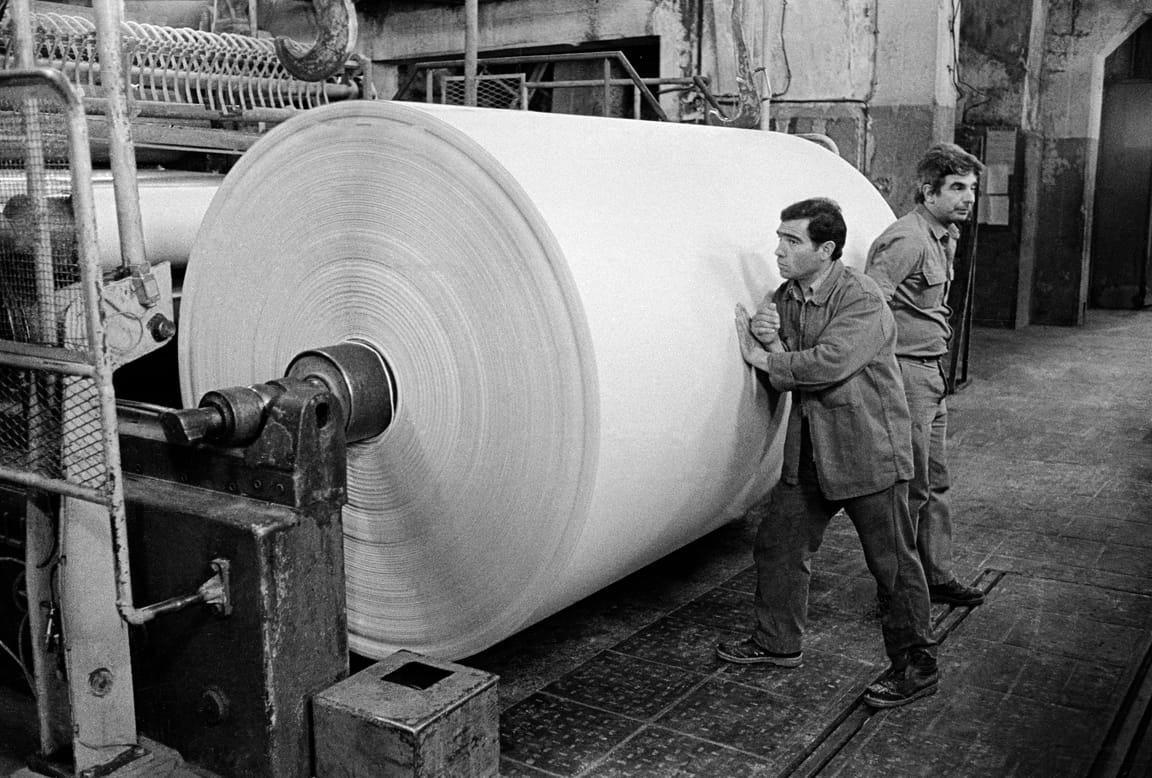
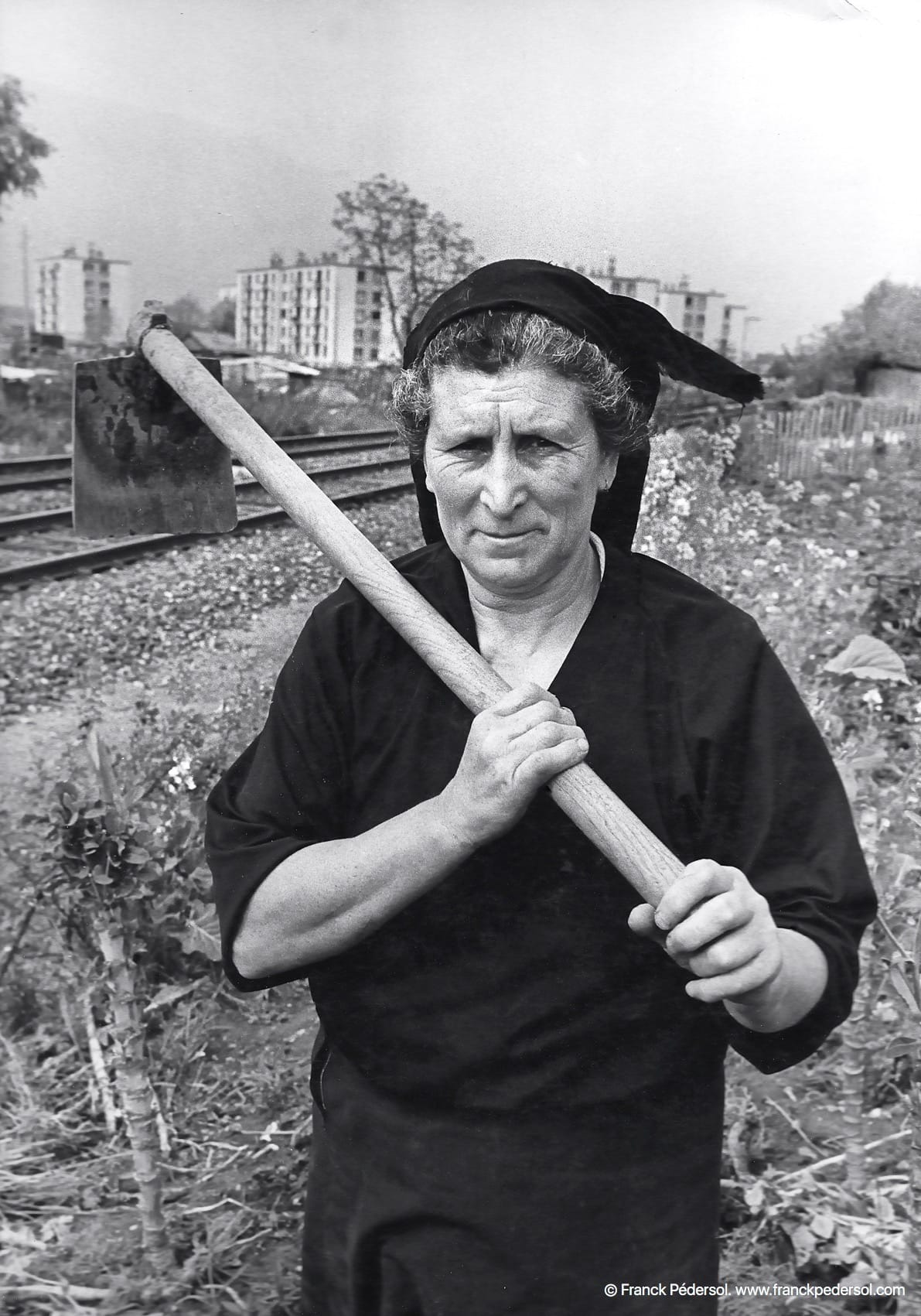
© Franck Pédersol
Ethics in Photography
For Pédersol, the relationship between the photographer and the subject is sacrosanct. He believes in a co-production model where the subject consents to and participates in the photographic process. This ethical stance ensures that his images are not just taken but shared experiences, reflecting mutual respect and understanding.
A Glimpse into the Industrial Abyss
One of Pédersol’s most poignant images is of a woman working in a weaving mill. Taken in 1979 with an Asahi Pentax and a 50mm lens, this photograph encapsulates the grueling reality of factory work. The woman’s face, marked by fatigue and determination, speaks volumes about the harsh conditions within the mill. The deafening noise of the looms, which resonated in Pédersol’s head long after he left the factory, adds an auditory dimension to the visual narrative.
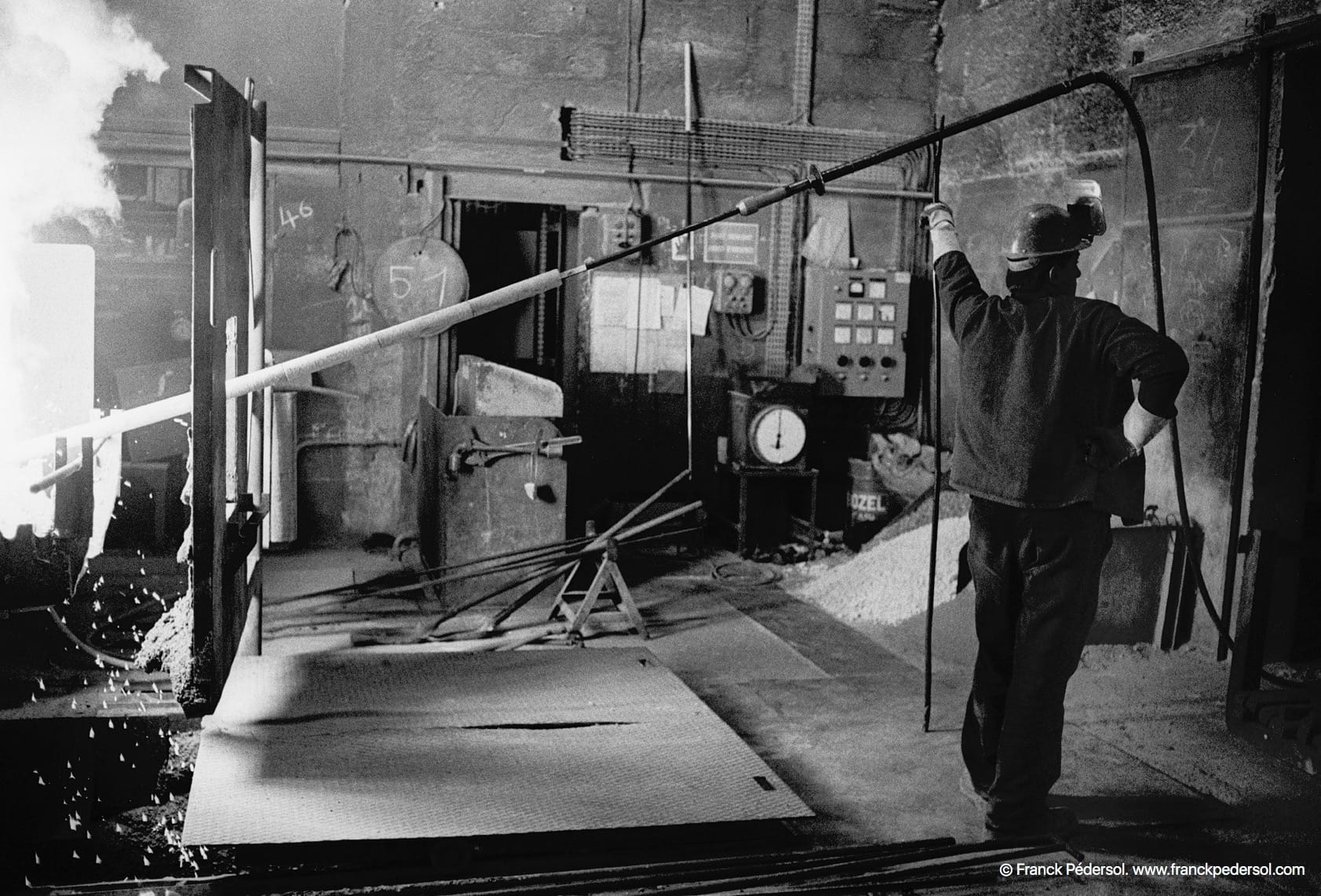
Beyond Photography
While photography is Pédersol’s primary passion, his career is multifaceted. He co-founded Médialp, a photo library and agency, and later Adncom, a communication consulting agency. His academic pursuits included teaching corporate communication at the Institute of Communication and Media in Grenoble, with missions in China and Algeria. These experiences enriched his understanding of visual storytelling and the broader context in which his subjects exist.
Current Endeavors and Philosophical Reflections
As he prepares for his next exhibition, Pédersol reflects on his journey. He resonates with Robert Doisneau’s sentiment that photography is a hobby, while his true passion lies elsewhere—in this case, fishing. For Pédersol, photography is about capturing fleeting moments that evoke a range of emotions, from joy to contemplation.
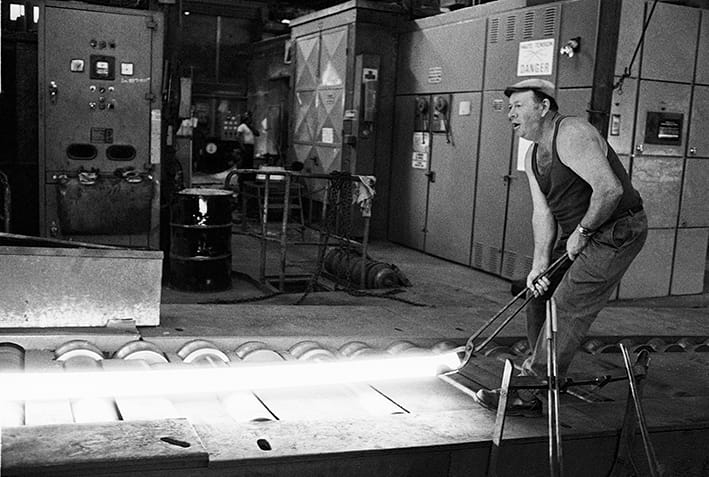
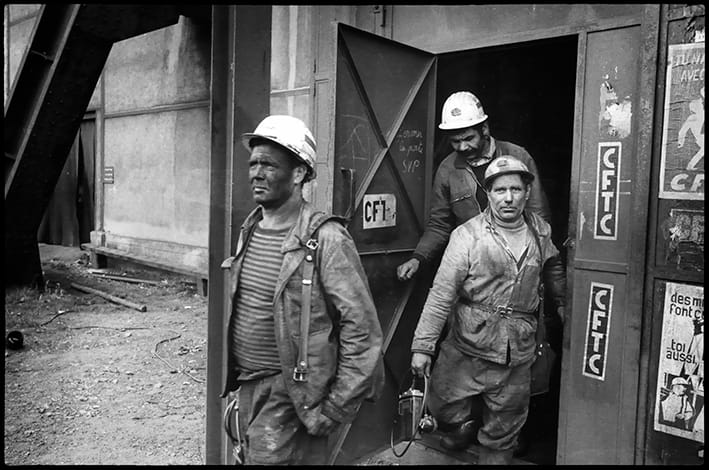
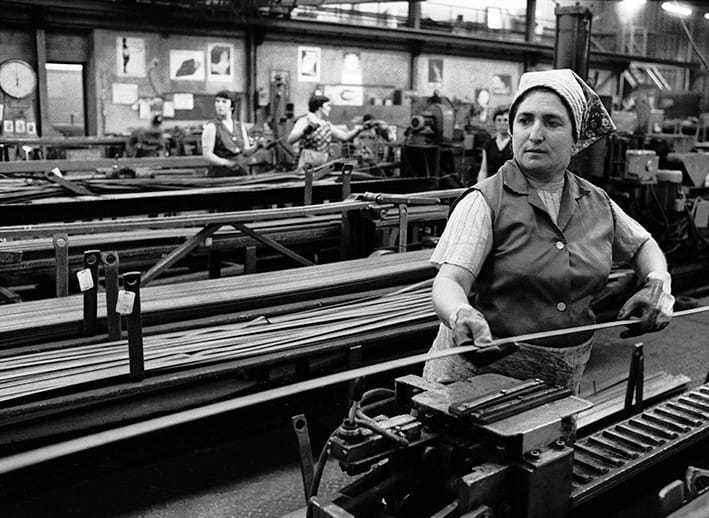
© Franck Pédersol
A Legacy of Visual Storytelling
As Pédersol continues to document life through his lens, his work remains a valuable archive of human endeavor. His photographs serve as historical records, artistic expressions, and ethical statements. They invite viewers to step into the shoes of those who labor in obscurity, shedding light on their struggles, triumphs, and the intricate tapestry of their lives.
The Future of Pédersol’s Photography
Looking ahead, Pédersol remains committed to his craft. He plans to delve deeper into the industrial world, exploring new subjects and honing his technique. His upcoming exhibition will undoubtedly be a reflection of his enduring dedication to capturing the essence of life and work.
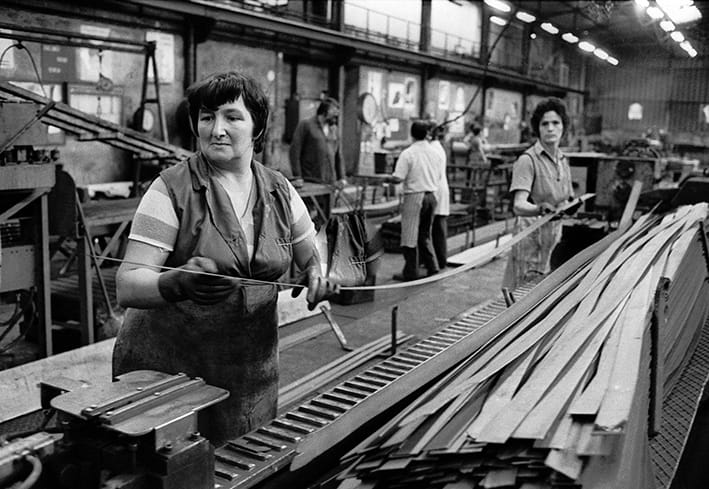
Franck Pédersol’s journey as a photographer is a testament to his unwavering commitment to capturing the human experience. From his early fascination with the camera to his profound exploration of industrial labor, Pédersol’s work is a celebration of resilience, dedication, and the indomitable spirit of workers. His photographs are not just images but stories—stories that document, challenge, and inspire. As he continues to navigate the ever-evolving landscape of photography, Pédersol’s lens will undoubtedly remain focused on the heart of humanity, capturing the silent symphony of life at work.
